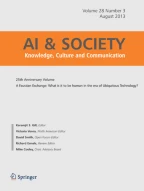Abstract
‘SWAMPLAB’ is a strong case for intuitive insights through arts, sciences, and technologies to engage the self and establish meaningful social interactions including humans and non-humans. While zigzagging through processes of privatization, globalization, ecological, economic, social and political challenges, the power of such residencies or labs stems from the interplay with the local context and its habitants, in this case, nature reserve De Zegge, a 111 hectares swamp in the Northern part of Belgium. Mediation and participation are a core condition for the design of knowledge and engagement since without informed consent and participants understanding the nature of the process, no change is possible. The more individuals express and explore their knowledge through social encounters, narratives, and dialogs, the more crucial tacit knowledge can be shared. Making things disputable is another responsibility. In society at large, there are very few examples where people feel interconnected and yet at the same time can disagree. The notion of Swamplab is rather a call for wonderment, for not using each other as a stepping stone but setting up open dialogs, listening and reflecting together, playing around, tinkering, since messiness is allowed. Including non-humans, be they wolves, moles or avatars, and virtual agents, is key to cracking the individual resistance to change understandings, opinions, and behavior. The result may lead to deeper engagement and Buckminster Fuller’s “comprehensive anticipatory design science” or what Bruno Latour calls a “progressive composition of the good common world”.
Similar content being viewed by others
Explore related subjects
Discover the latest articles, news and stories from top researchers in related subjects.Notes
Order Out of Chaos: Man’s New Dialogue With Nature, Bantam Books, London: Heinemann, 1984.
The Monkey Wrench Gang by Edward Abbey, Lippincott Williams & Wilkins, 1975.
Presence and the Design of Trust, Phd dissertation by Caroline Nevejan, University of Amsterdam, 2007.
The Ultimate Hitchhiker’s Guide to the Galaxy by Douglas Adams, The Random House Publishing Group, 2002. (Containing The Hitchhiker’s Guide to the Galaxy, copyright© 1979 by Douglas Adams; The Restaurant at the End of the Universe, copyright© 1980 by Douglas Adams; Life, the Universe and Everything, copyright© 1982 by Douglas Adams; So Long, and Thanks for All the Fish, copyright © 1985 by Douglas Adams; Young Zaphod Plays It Safe, copyright© 1986 by Douglas Adams; Mostly Harmless, copyright © 1992 by Serious Productions).
De Zegge: De vallei van de Kleine Nete met De Zegge en de tijd van toen(De Zegge: The valley of the Kleine Nete and the days back then – title translation MW) by Marcel Verbruggen, copyright ©Marcel Verbruggen, 2018.
Author information
Authors and Affiliations
Corresponding author
Additional information
Publisher's Note
Springer Nature remains neutral with regard to jurisdictional claims in published maps and institutional affiliations.
Rights and permissions
About this article
Cite this article
Wynants, M. SWAMPLAB. AI & Soc 38, 1941–1944 (2023). https://doi.org/10.1007/s00146-020-01030-x
Received:
Accepted:
Published:
Issue Date:
DOI: https://doi.org/10.1007/s00146-020-01030-x
